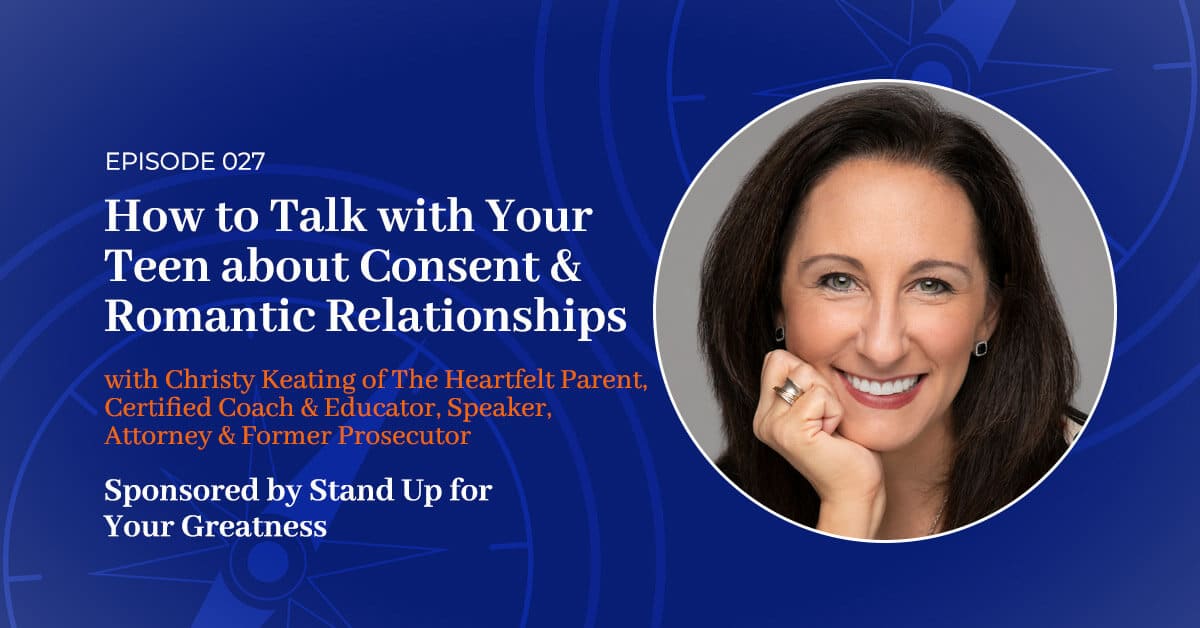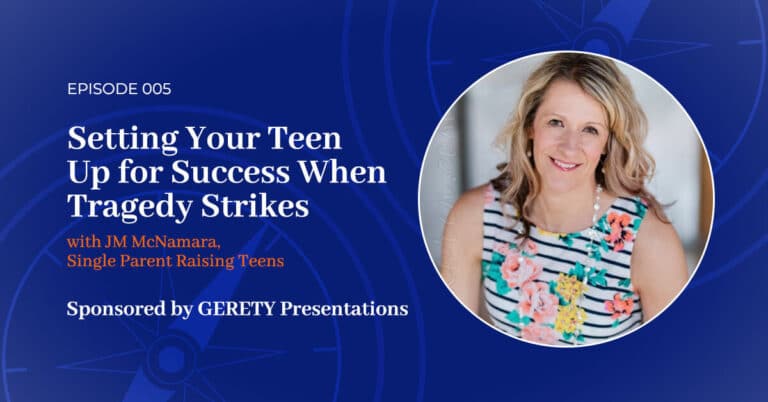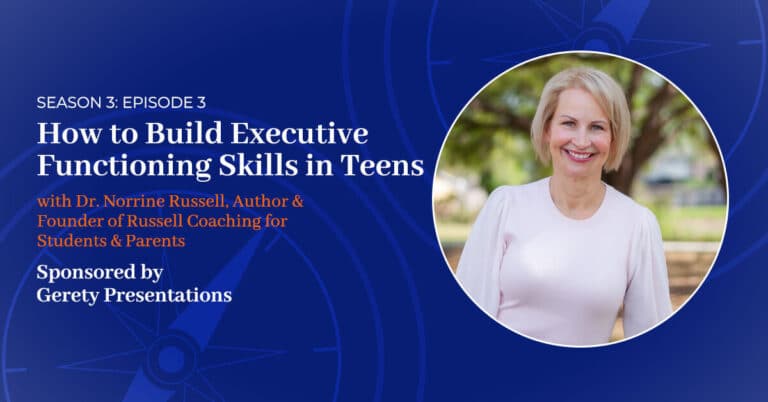Christy Keating is the Founder of The Heartful Parent, a Certified Parent Coach & Educator, and a licensed attorney and former prosecutor of 20 years with an expertise in the prosecution of sexually violent predators. Christy loves helping parents experience more love, joy, and connection in their families with The Heartfelt Parent Coaching Programs.
In this episode. Christy talks about how to talk about consent with your children. She covers everything your teen could say if they face rejection to setting healthy boundaries with others on what they’re ready and not ready to do. Unfortunately, with the internet, if parents aren’t having these conversations, our teens will find an unhealthy version of it elsewhere.
Key Takeaways
- How do we teach our children about consent?
- What is the definition of consent?
- If your teen doesn’t feel comfortable asking for consent, then they should not be doing it.
- What can your teen do when they experience rejection?
- On the other side of this, how can you teach your child to safely say no?
- How do we help build the confidence in our children to say no?
- Currently pornography makes up for 1/3rd of all sites and searches on the internet.
- All of our teens will see pornography by the time they hit college.
- If we don’t have the conversation at home, our children will be learning about it on the internet.
- What parental filtering systems should parents use?
- You shouldn’t just have ‘a conversation’ and forget about it. You have to have many small 1-5 minute conversations about what’s healthy and what’s not in adult relationships.
- According to a Harvard study, children want to hear more from you!
- Remember, it’s better to start now than to never start.
- What happens when your teen just refuses to have conversations?
Quotes:
“I always say to kids, if you’re not able to talk about it, then you’re not ready to do it.”
“Our teens need to understand that ‘no’ is a complete sentence.”
“Consent can’t be a one-time conversation. It has to be ongoing.”




